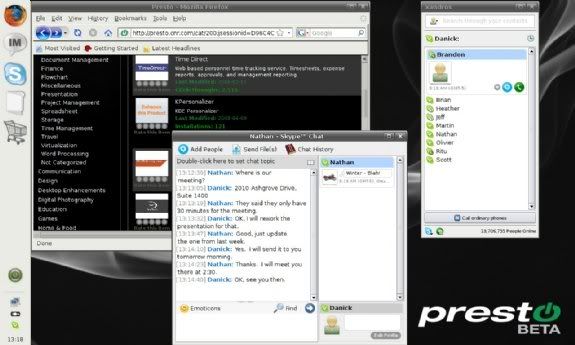
Presto: Instant-On for Any PC
You've probably heard about PCs like the HP Voodoo Envy133 and the Lenovo IdeaPad S10e that can start almost immediately, booting into a Linux OS so you can check e-mail or play some music. But so far, those systems have been embedded in a PC's BIOS, meaning that if your PC didn't ship with the capability then you were out of luck. Presto is a similar instant-on system that you can install on an existing laptop or desktop. Made by Xandros, makers of a popular Linux distribution, Presto should be available as a free beta on March 16.
Why Presto your PC?
Save time and battery life when you need to get online fast
Make old and slow computers useful again—inexpensively
Enjoy a simple, reliable and secure way to get online
Listen to music and watch videos anywhere
Increase your productivity with thousands of available programs
Bonus SuperPass Media
Enjoy unlimited access to popular music and videos with a two week trial of Real Media’s SuperPass!
The retail version of Presto is now available as a free Beta download. Click here to download Presto
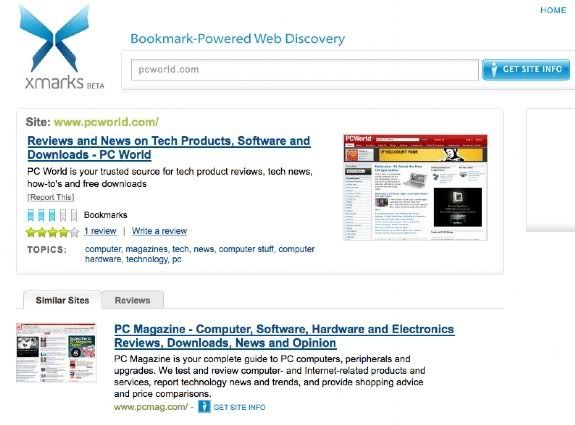
Xmarks: Bookmark Collective
Xmarks is created by the same people who make Foxmarks, a browser add-on that synchronizes bookmarks for 3 million computer users. That user base gives the service information on 600 million bookmarked pages. Xmarks is a way to make all that information useful to other users.
You can interact with Xmarks two ways. If you go to xmarks.com, you can enter a site name and Xmarks will let you know what other people think of it. A rating scale tells you how often it's bookmarked, Xmarks users can review the site and Xmarks will tell you about related sites.
You can also install the Xmarks browser add-on (if you already have Foxmarks installed, the update will be pushed out to you soon). When you search at Google, Yahoo, or Microsoft's Live Search, Xmarks will look at the results and offer additional information about the three links per page that have the highest score- a combination of how many people have bookmarked the site, plus its "bookmark velocity," how quickly people are adding the site to their bookmarks. That information looks like it can be pretty handy in finding the most useful sites in your list of search results.
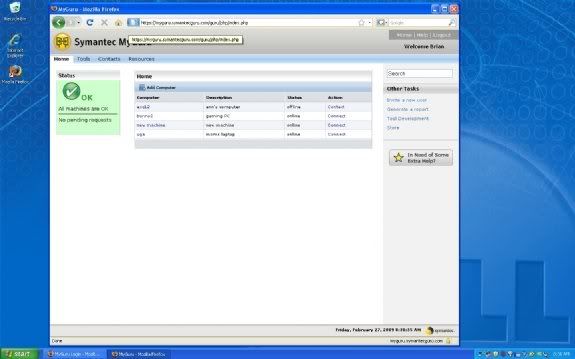
Project Guru: Computer Help From Afar
Symantec has developed a way for geeks to reach out to friends and family over the Internet and fix their computers. With Project Guru, computer savvy tech gurus can invite people to join their Guru network, where they can remotely troubleshoot and repair PCs.
Symantec is developing a handful of tools for the service right now: a remote desktop, security and malware scans, performance tests, and error logs. The service is being tested in a small pilot program and Symantec plans to make a public beta of the service available later this year. The company hasn't worked out whether or not Guru will be free.
(Thanks to Robert McMillan of the IDG News Service.)
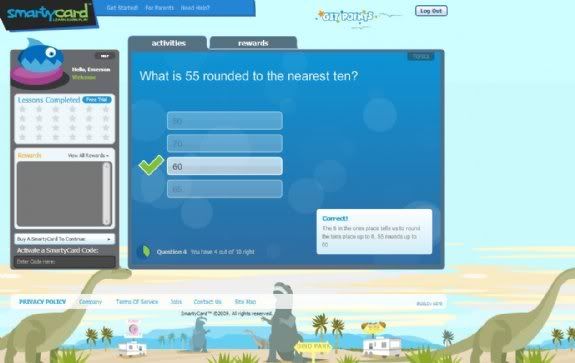
SmartyCard: Educational Baksheesh
Any parent who's struggled with a kid whose grades just aren't what they should be learns that sometimes, a little bribery helps. Consider SmartyCard a bribery facilitator. Parents set up accounts that provide rewards, in the form of CDs, toys, video games and books. Kids have to take tests on content that's appropriate to their grade level (the site now serves kids in grades 3 through 6). When your little Einstein aces a quiz, they earn points toward their next reward.

Home-Account.com: Fire your Mortgage Broker
Home-Account.com aims to demystify the mortgage process and make it easy to refinance your home without a mortgage broker.
Their system asks you a series of questions about your financial situation, checks your credit report, then gives you a list of offers for home loans you can choose from. The company says it doesn't get any commissions for matching consumers with loan companies. They argue that means consumers will get the best deals: Lenders would rather get a customer through Home-Account than pay a commission to a mortgage broker, so they'll give the best prices to Home-Account customers. Joining Home-Account costs $9.95 per month.

Pixetell: Facilitating Design-by-E-Mail
As more and more businesses depend on staff located all over the world, communication about things that are essentially visual -- the design of a Web page or the layout of a new store, for instance -- is becoming increasingly difficult. Plain e-mails make it too difficult to describe what you want and video conferences can be hard to schedule.
Pixetell hopes to solve the problem by letting people send e-mails that can include text, video, images and audio in one message. You can send a blueprint of a new store, with your scribbles on it and talk about what you're hoping to see in the next design. Recipients can reply with their own audio and video and their own marked up images.
The service is in private beta now. It's final price hasn't yet been determined.

Gazaro: Your Bargain Hunter
A number of services already search the Web for good deals on your behalf. Gazaro looks like it could be a solid addition by offering not just deals, but an analysis of just how good those deals are.
Gazaro, which is free and open to all, analyzes the price history of a product and tells you whether the price a site is offering is a really good deal or not, based on how prices have been in the past. In other words, $1200 for a particular flat-screen TV may be the best deal you can get now, but it's not a very good deal if the same TV was $1000 a month ago. With that kind of information, you may decide to wait for the price to go down again.
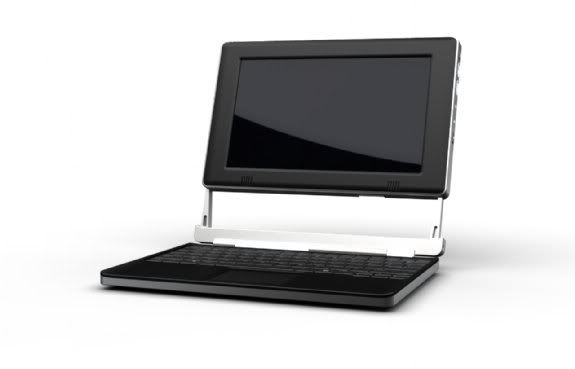
Touch Book: It's a Netbook, It's a Tablet
A Menlo Park company called Always Innovating says its Touch Book will be a netbook that turns into a tablet PC when you pull the screen away from the keyboard. The company also says the Touch Book's battery will last 12-15 hours on a charge.
The Touch Book uses an ARM processor, which means it won't require a fan and won't need much power. But company officials also say it'll be powerful enough to play video, and, even though it comes running Linux, that it can run other OSs as well. It may be significant, though, that the other OS they mentioned as an example was Android, not Vista. ARM processors are far from the most powerful chips on the planet.
The Touch Book is supposed to sell for no more than your average netbook, $299 as a tablet PC only without a keyboard and $399 with a keyboard. The company's Web site says the product is supposed to ship "in May or June 2009."
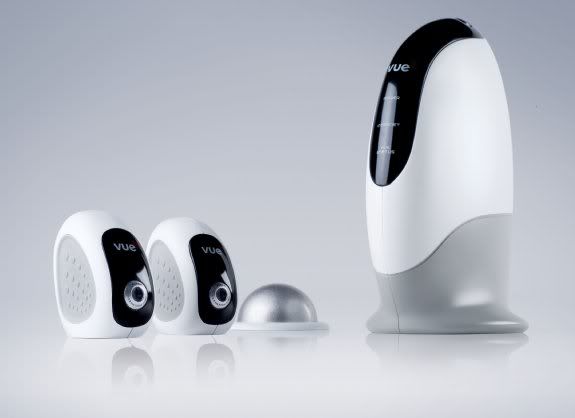
Vue: No-Fuss Webcams
If you want to keep an eye on things at home, but you don't want to string wires all over the place, Avaak Vue Personal Video Network could be just the ticket. These palm-sized cameras need no wires, attach to anchors you stick to a wall and can operate for as long as a year on one battery. They communicate with a gateway you connect to your router and voila, you can see your cat's latest follies through any browser.
The system appears to be super-easy, but not super-cheap. A kit with two cameras, one gateway and four mounts is priced at $300. The company promises to ship the Vue in early summer.
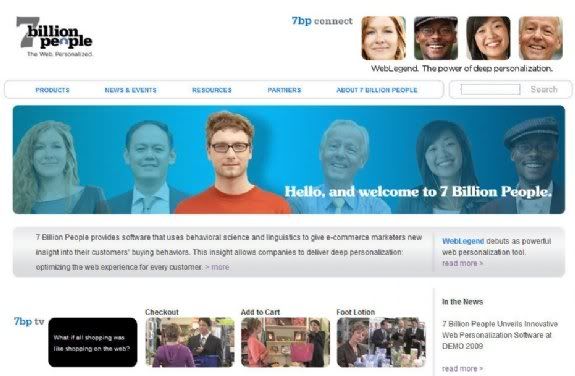
7 Billion People: Personalized Shopping
7 Billion People hopes to make shopping a more personal experience. The developers of 7 Billion People say they use linguistic and behavioral psychology to analyze what you do on the Web and from that data figure out what kind of shopper you are.
Their demo showed the service running on top of Amazon.com (though they noted that Amazon is not a customer). One company exec went into the site and immediately drilled down to the specs of a camera he was looking for, ignoring all reviews by other customers and recommendations of other popular products. When he returned to the site, his experience was tailored to him -- specs were front-and-center, while most information about reviews and recommendations by other shoppers was buried.
His colleague went to the same pages, but clicked first on user reviews and information like "Other people who looked at this product also looked at ...." When he went to an Amazon page for another product, the site immediately opened up the user reviews page, figuring he would probably be interested.
If 7 Billion People can get this complicated artificial intelligence right, the service could actually make online shopping more efficient for everyone.
source:PC World Article